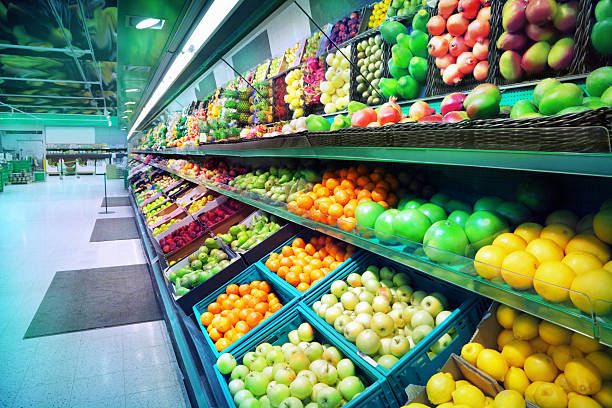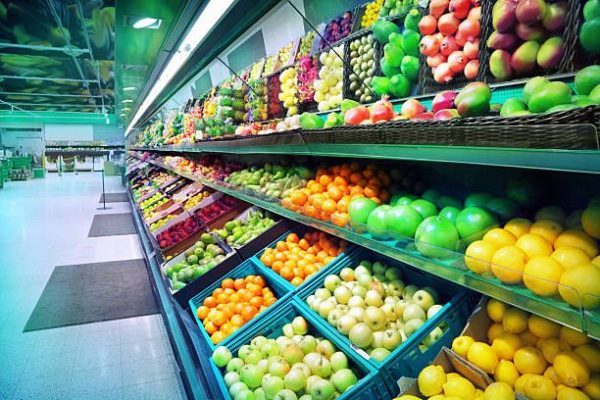
By: Loise Shiimi
Following a prolonged period during which frost negatively impacted many crops, resulting in only six varieties being banned from importation in August, a positive development seems to have formed.
From 1 to 30 October, eight crops will be restricted from importation out of a total 20 controlled produce.
On 23 September, Namibian Agronomic Board (NAB) chief executive, Fidelis Mwazi, issued a notice to all horticultural traders announcing the closure of borders for the importation of various types and sizes of carrots, cabbage, English cucumber, onions, jam tomatoes, cocktail tomatoes, round tomatoes, and spinach.
Additionally, Mwazi noted that nine crops will remain open for unrestricted importation, although a 47% market share promotion (MSP) applies to these. This indicates that local farmers have not been able to produce enough to satisfy domestic demand for these crops, which include butternuts, green peppers, gem squash, washed potatoes, pumpkins, sweet potatoes, watermelons, sweet melons, and sweet corn.
The MSP scheme is part of the Growth-at-Home strategy implemented by the NAB, aimed at stimulating local horticultural production and encouraging the sale of domestically produced fresh fruits and vegetables by motivating importers such as wholesalers, catering companies, and retailers to source locally.
To supplement local production where farmers are unable to fully meet demand, Mwazi has established a pro-rata import system for three products.
He announced that importation of all types and sizes of coloured peppers will be allowed at 20%, excluding certain exceptions, while all types and sizes of beetroot will also be permitted at 20%, with certain exclusions. Furthermore, all types and sizes of lettuce will be allowed at 30%, and 50% of coloured peppers can be imported.
Emily Abraham, horticulture manager at the NAB, pointed out the importance of these monthly notices, stating that they serve as valuable tools for farmers to identify crops that are in short supply in the local market, enabling them to plant accordingly.
“It also helps farmers assess which crops are abundant, thus avoiding overproduction of the same variety that might lead to market saturation and financial losses. This measure is intended to protect local producers from competition with cheaper and often inferior imports,” she explained.
Abraham urged farmers to stay informed and monitor consumer preferences each season. She noted that during summer, there is a noted demand for watermelons, and farmers should seize this opportunity to produce more, as customers typically prefer watermelons in the hotter months.
“Moreover, butternuts might become expensive due to insufficient local production, necessitating imports. Farmers need to capitalise on such market trends by producing butternuts year-round. The NAB is here to assist those who may struggle to access the market,” she said.
When asked about the recovery of crops affected by frost, Abraham acknowledged that this year’s frost had severely impacted crops, with some not surviving. While some farmers have restarted their planting, others have found success in recovering their crops.
Abraham also revealed plans for a program aimed at training farmers on best practices for protecting their crops from frost during winter, starting with fruit tree growers, as these trees represent long-term investments that farmers are reluctant to lose.
Horticultural farmer Asser Nghipewa shared his perspective with Eagle FM, explaining why he does not produce certain crops, citing a lack of market protection.
“There’s no clear understanding of who we are producing for. While we appreciate the NAB’s efforts to find markets for us, at times they fail to identify a market, especially when a crop is produced in excess, leading to losses. Nonetheless, NAB does offer assistance,” he noted.
He suggested the need for clarity on market demands, saying, “We should know who we are producing for, especially if products are already on store shelves. We don’t want to approach retailers only to find that they are already stocked, which means we are cultivating without a defined market.”
Reflecting on his experience from last year, he recounted producing an excess of butternuts and, after reaching out to numerous local stores, discovered they had sufficient stock, leading him to donate the surplus to a hospital and a school.
He concluded that in light of these challenges, he now focuses on producing crops based on community demand, which has ultimately proven more rewarding.









